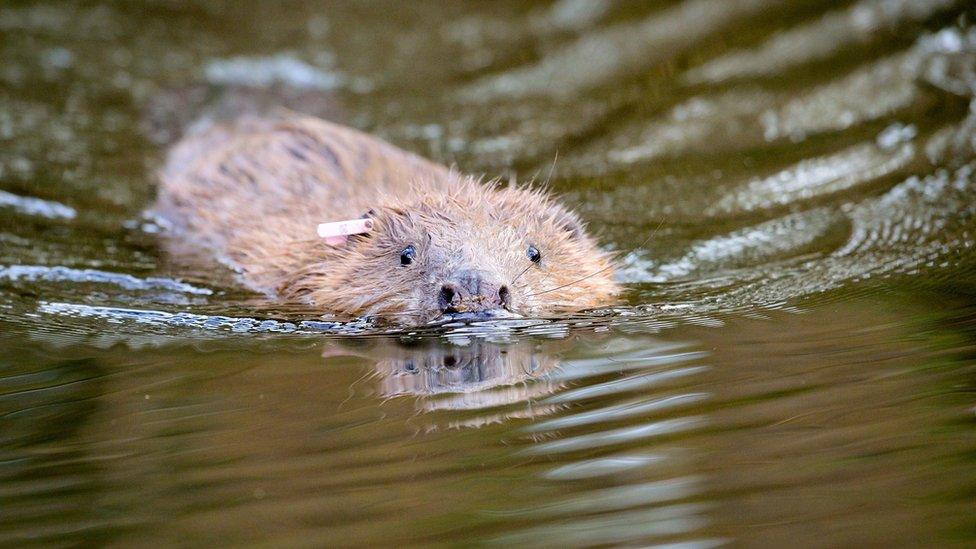Wallington: Beaver family released on Northumberland estate
- Published
First beaver family released in Northumberland
A family of four beavers have been released on a National Trust estate to boost wildlife and help prevent flooding by building dams on rivers.
Once a mainstay of British rivers, beavers became extinct there in the 16th Century due to hunting but in recent years have been reintroduced.
The latest location is Northumberland's Wallington Estate following successes on Exmoor and the South Downs.
The family are expected to transform the landscape with their dams.
Their behaviour will be monitored to study potential benefits to other rare wildlife including native white-clawed crayfish.
'Engineering the landscape'
The release of the two adults and two youngsters, which were relocated under licence from Tayside, will become one of the few beaver populations in northern England.
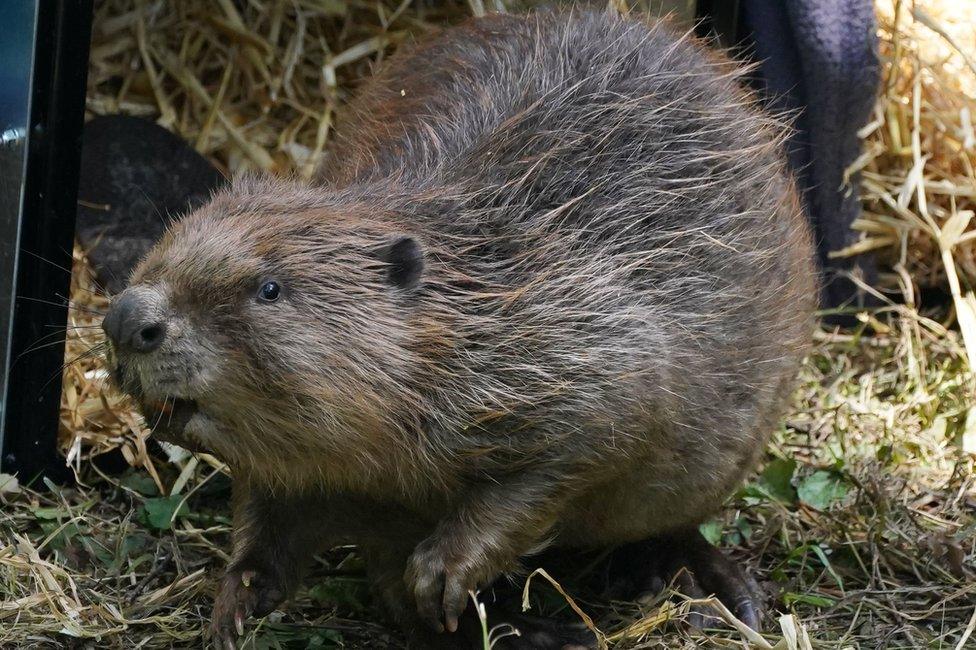
The Eurasion beavers are expected to transform the landscape with their dams
The four beavers walked straight into the stream and began to eat willow branches that had been left for them, although the father retreated back to his crate.
BBC Look North's Mark McAlindon, who was among the journalists and rangers watching on, said the male "came out, sniffed around and then fled back into his crate", which shook when he ran inside.
"He then came out and slipped into the stream to enjoy his new home," he added.
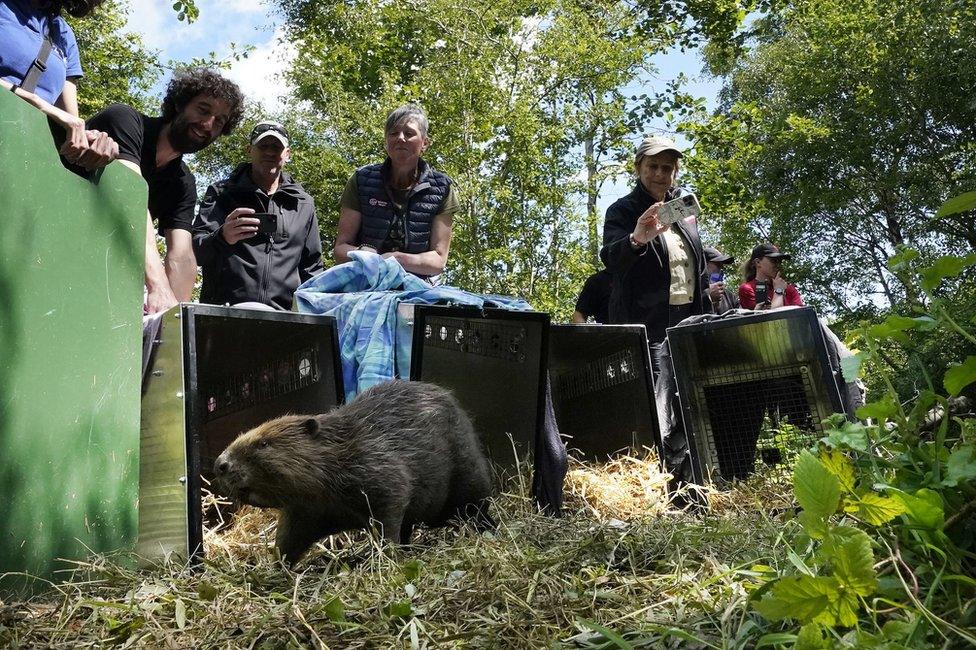
The beavers were relocated from Scotland, with Northumberland becoming the third such project in England
They will make their home in a 24-hectare fenced enclosure on an upland tributary of the River Wansbeck, transforming the landscape with their dams.
Paul Hewitt, National Trust countryside manager, said: "Much as they did centuries ago, these instinctive animals will engineer the landscape, creating a dynamic system of dams and ponds that, over time, will become a lush wetland, brimming with life.
"The BBC's Wild Isles was a powerful reminder of the beauty - and critically, the scarcity - of British wildlife.
"If we are to make sure those amazing natural spectacles don't become a thing of the past, we have to create space for wildlife to thrive.
"Beavers are a fantastic tool to help us do that; where they go, fish, insects, birds and amphibians follow."
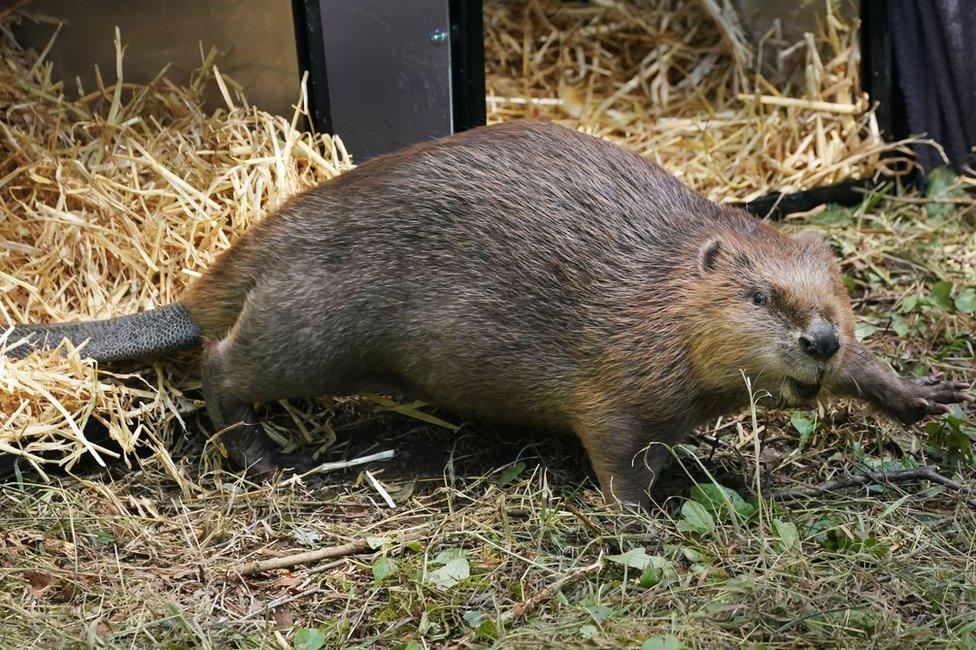
The beavers have been described a "ecosystem engineers"
By creating pools on the stream, the beavers mitigate the effect of climate change by slowing the speed of water coursing through during heavy rains, and holding water in the location during drought.
Dr Roisin Campbell-Palmer, who led the release for the Beaver Trust, said: "What's really interesting in relocating these animals to the enclosure at Wallington is the upland stream setting, a recovering, formerly heavily grazed landscape.
"Wallington is a great example of exactly where we want these animals to be reintroduced, to demonstrate their ability to restore natural processes and where they are very likely to produce a textbook example of landscape scale beaver benefits: slowing and storing water, boosting biodiversity, and promoting woodland regeneration."
Helping to take care of the beaver enclosure will be a team of more than 25 National Trust volunteers.
People have been asked to give the beavers time to settle into their home, however public visits may be possible in the future.

Follow BBC North East & Cumbria on Twitter, external, Facebook, external and Instagram, external. Send your story ideas to northeastandcumbria@bbc.co.uk, external.
- Published12 July 2023
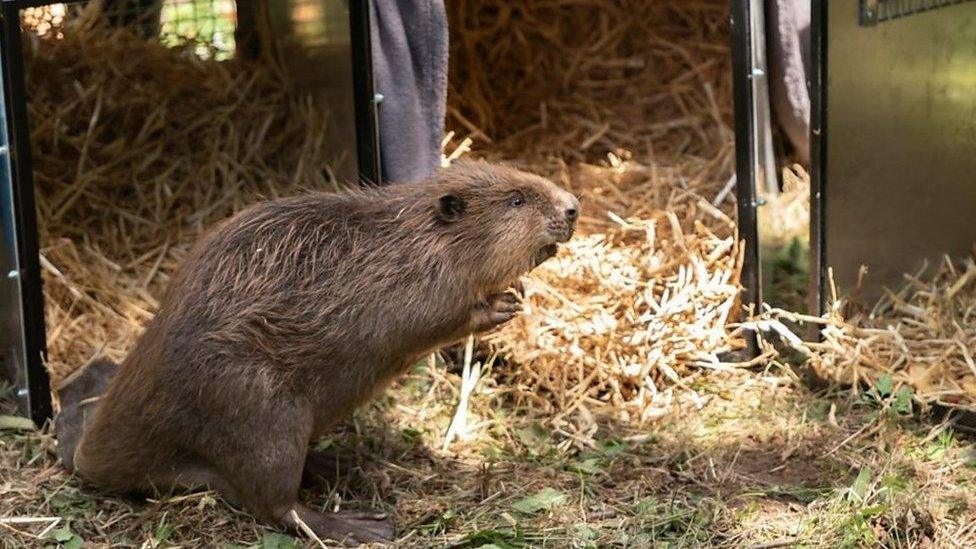
- Published13 July 2021
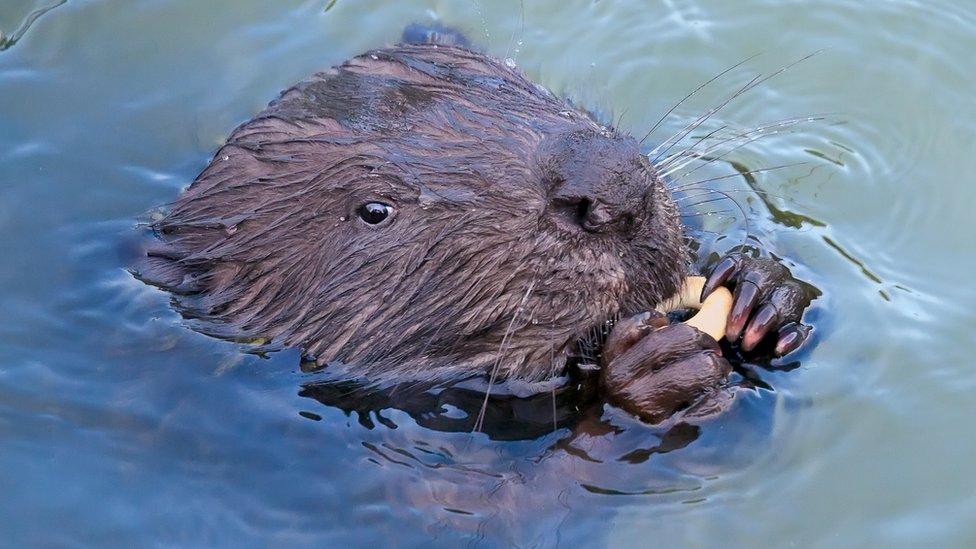
- Published23 April 2020
